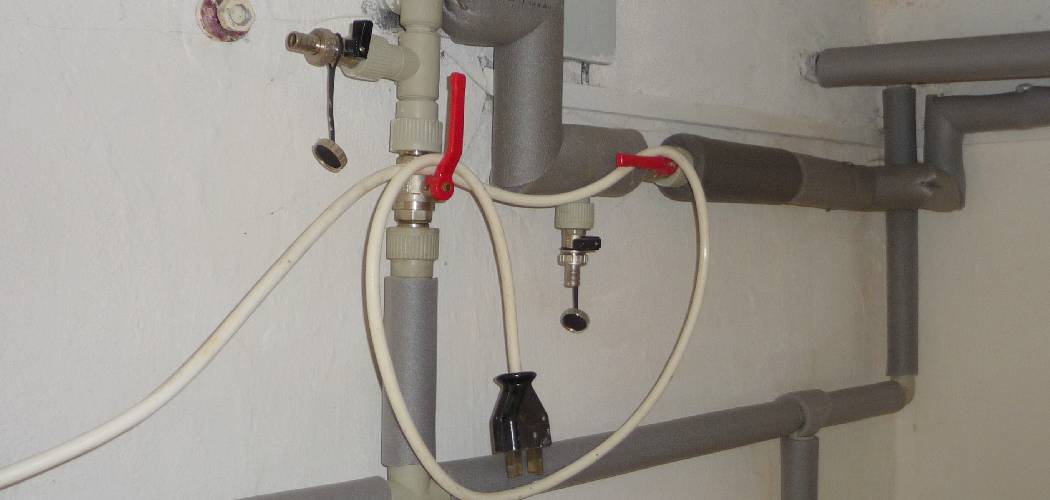The disconcerting sound of knocking or banging in your home’s plumbing system can be a cause for concern and annoyance. When it comes to hot water pipes, this phenomenon is often referred to as “water hammer” or “pipe knocking.” It occurs when the flow of hot water is suddenly halted or redirected, causing a shockwave within the pipes.
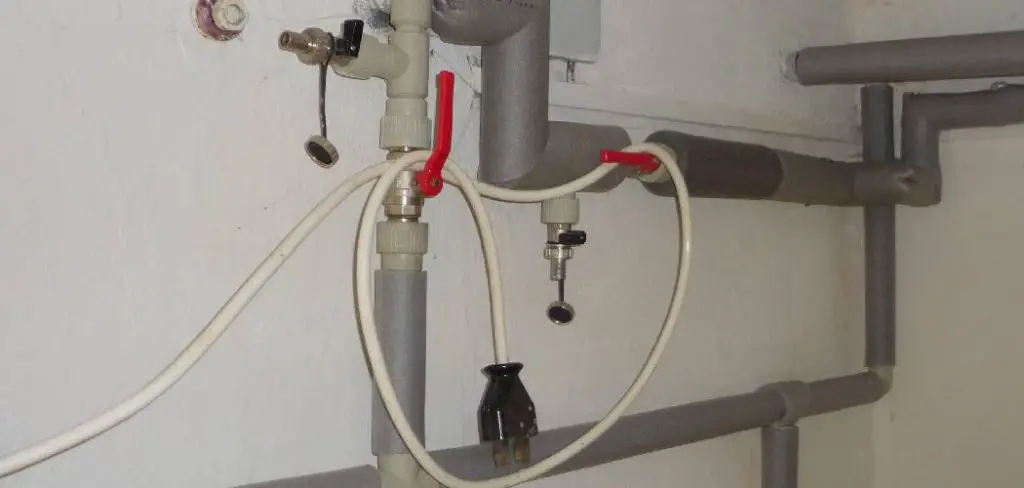
These abrupt disturbances not only create noise but can also lead to damage over time if left unaddressed. If you’re wondering, “How do I stop my hot water pipes from knocking?” you’re not alone. In this comprehensive guide, we will delve into the causes and solutions for quieting your hot water pipes.
From understanding the physics behind water hammer to implementing practical fixes such as installing water hammer arrestors or adjusting water pressure, you’ll learn how to put an end to those unsettling knocks and enjoy a peaceful, well-functioning plumbing system. Say goodbye to noisy hot water pipes and discover the steps to make your home’s plumbing a silent and efficient marvel.
The Annoyance of Hot Water Pipes Knocking or Making Noise
Are you constantly annoyed by loud knocking noises coming from your hot water pipes? If so, you’re not alone. This common household problem plagues many homeowners and renters alike. Not only is it irritating, but it can also be a sign of underlying issues that may lead to costly repairs if left unaddressed.
The Cause of Knocking Pipes
Hot water pipes knocking or making noise is often caused by a phenomenon known as “water hammer.” This occurs when the flow of water through the pipes suddenly stops or changes direction, causing a rapid change in pressure within the plumbing system. The resulting shock wave travels through the pipes and creates the loud knocking sound that we hear.
Water hammer can also result from loose fittings or poorly secured pipes, which allows them to move and vibrate with the sudden change in water flow. This can happen when turning off a faucet or flushing a toilet, for example.
Effects of Knocking Pipes
Aside from the obvious annoyance factor, knocking pipes can also cause damage to your plumbing system. The repeated shock waves from water hammer can weaken and eventually break fittings, joints, and pipes themselves. This can result in leaks and costly repairs down the line.
10 Methods How Do I Stop My Hot Water Pipes from Knocking
1. Check the Pressure Regulator
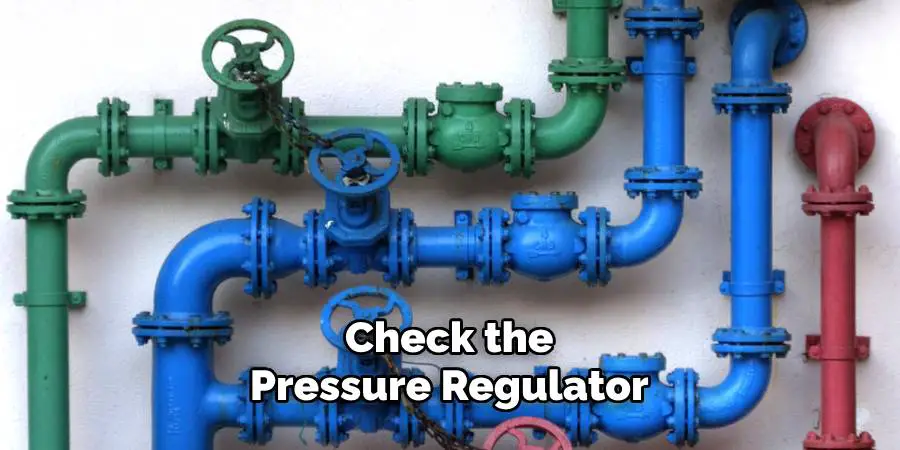
The first step in stopping your hot water pipes from knocking is to check the pressure regulator. The pressure regulator is a device that controls the amount of water pressure in your pipes, and if it is set too high, it can cause the pipes to vibrate and make a knocking sound. To adjust the pressure regulator, you will need to turn off the main water supply and then use a wrench to loosen and adjust the screw on top of the regulator.
2. Install an Expansion Tank
Another way to stop your hot water pipes from knocking is to install an expansion tank. An expansion tank is a small tank that is connected to your water heater and helps regulate the pressure in your pipes by absorbing any excess pressure when it builds up. Installing an expansion tank can help reduce or eliminate pipe knocking caused by high water pressure.
3. Flush Out Sediment
If you have hard water, sediment can build up in your pipes over time and cause them to vibrate when hot water passes through them, resulting in pipe knocking. To prevent this, you should flush out your pipes periodically using a mixture of white vinegar and baking soda. This will help remove any sediment buildup that could be causing the pipe-knocking noise.
4. Insulate Your Pipes
Insulating your hot water pipes can also help reduce or eliminate pipe knocking caused by vibrations due to temperature changes in the surrounding environment. You can purchase insulation material at most hardware stores, cut it into strips, and wrap it around each section of exposed piping in order to insulate them from temperature fluctuations.
5. Replace Old Pipes
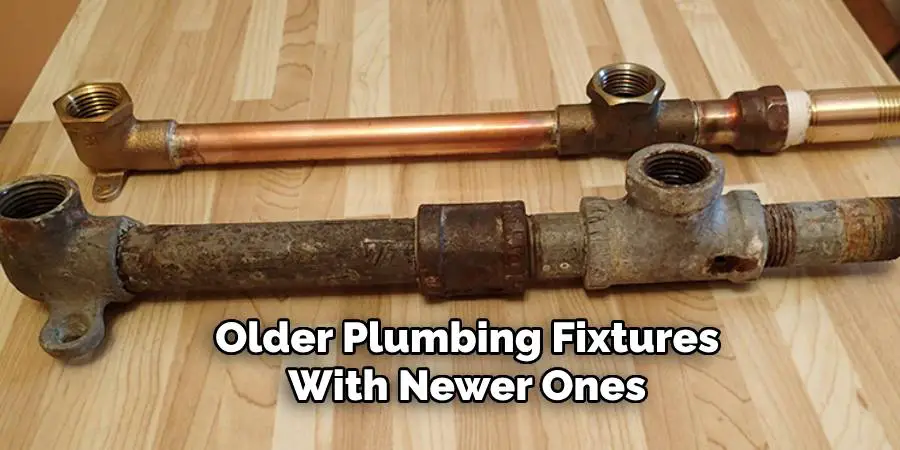
If none of these methods work for you, then you may need to replace some of your older plumbing fixtures with newer ones that are designed specifically to reduce pipe vibration and noise levels. Newer fixtures often come with rubber gaskets or other materials that are designed to absorb vibrations more effectively than older models do, so replacing old fixtures may be necessary if they are causing excessive pipe-knocking noises.
6. Check for Leaks
Leaks can also cause pipes to vibrate and make a loud banging sound when hot water passes through them due to sudden changes in pressure levels within the system as a result of air entering through holes or cracks in plumbing fixtures or joints between sections of pipe. Checking for leaks regularly will help ensure that there are no sudden changes in pressure levels within your system, which could be causing excessive pipe-knocking noises.
7. Install an Air Chamber
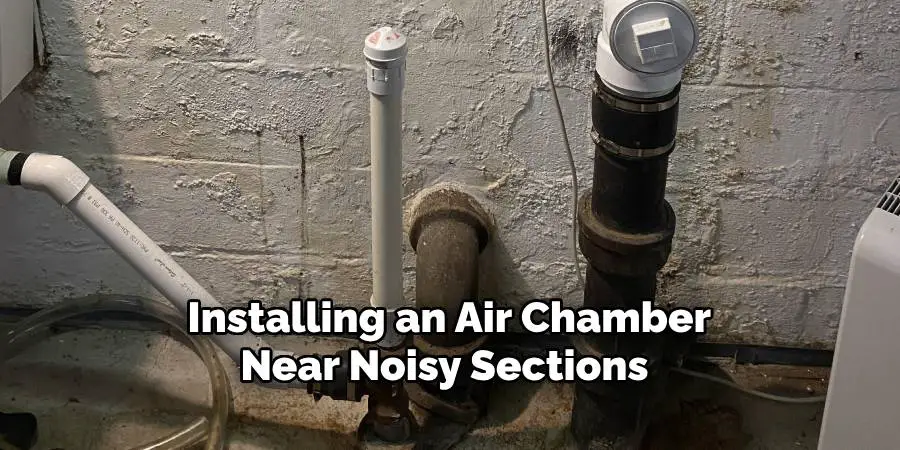
An air chamber is another device that helps reduce noise levels caused by sudden changes in pressure levels within your plumbing system. It works by allowing air into one end of a chamber while preventing it from escaping at the other end, thus helping equalize any sudden changes in pressure levels due to air entering through holes or cracks. Installing an air chamber near noisy sections of piping may help reduce or eliminate excessive pipe-knocking noises.
8. Use Anti-Vibration Clamps
Anti-vibration clamps are devices that attach directly onto sections of piping where vibration occurs most frequently, such as near valves, taps, elbows, etc. These clamps work by dampening vibrations before they reach other sections of piping, thus reducing noise levels significantly. Installing anti-vibration clamps on noisy sections of piping may help reduce or eliminate excessive pipe-knocking noises.
9. Reduce Water Pressure Levels
Reducing overall water pressure levels within your plumbing system may also help reduce noise levels caused by vibrations due to sudden changes in pressure levels as hot water passes through various sections of piping. Reducing overall water pressure levels may require professional assistance as some adjustments must be made at both ends (the supply side as well as inside individual fixtures ) before significant results can be seen.
10. Upgrade Your Boiler System
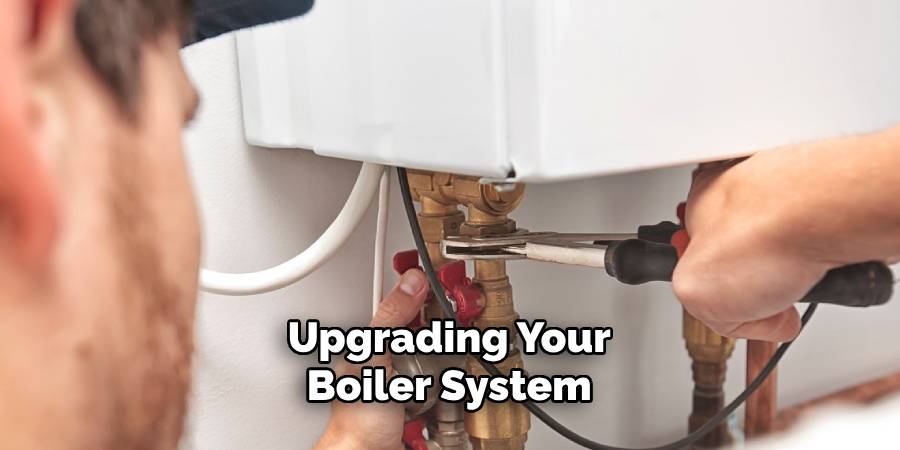
Finally, if all else fails, upgrading your boiler system may be necessary if it’s not able to handle high temperatures efficiently enough without causing excessive vibration throughout its associated piping systems, resulting in loud banging noises every time hot water passes through them. Upgrading boilers requires professional assistance, so make sure you contact a qualified technician before attempting any repairs yourself!
Things to Consider When Stopping Hot Water Pipes from Knocking
When your hot water pipes start making noises, it can be quite annoying and disruptive. Not only that, but it could also be a sign of an underlying issue with your plumbing system. It is important to take action to stop the knocking sounds before they lead to bigger problems.
Here are some things you should consider when trying to stop your hot water pipes from knocking:
- Identify the cause: The first step in solving any problem is identifying the root cause. In this case, the most common reason for knocking hot water pipes is high water pressure. However, there could be other factors such as loose fittings or faulty valves that need to be addressed.
- Check for loose pipes: If your pipes are not properly secured, they may vibrate and cause a knocking sound when water flows through them. Check for any loose pipes and secure them using pipe brackets or cushioned clamps.
- Install a pressure reducing valve: As mentioned earlier, high water pressure is a common cause of knocking pipes. Installing a pressure reducing valve can help regulate the water pressure in your plumbing system, preventing the pipes from making noise.
- Insulate your pipes: Sometimes, hot water pipes may make knocking sounds due to thermal expansion – when the hot water causes the pipes to expand and come into contact with other surfaces. Insulating your pipes can help reduce this effect and minimize the noise.
Conclusion
We have discussed some tips and tricks to rid your home of any rattling water pipes. Taking the time to inspect them, check for water pressure, bitter a professional, replacing seals or gaskets, and inspecting the valves/fittings can all lead you on path to understanding exactly how do i stop my hot water pipes from knocking. If you are without success in remedying the issue, contact a local plumber or contractor who can assist in diagnosing your distress and getting it fixed so that you can peacefully enjoy your home again!
A reminder to never hesitate when it comes to safety in your home; taking some precautionary steps can save you from an annoying issue or worse. So use these easy tips and take comfort in knowing you won’t have to hear those banging pipes again and have a quiet household once more.

